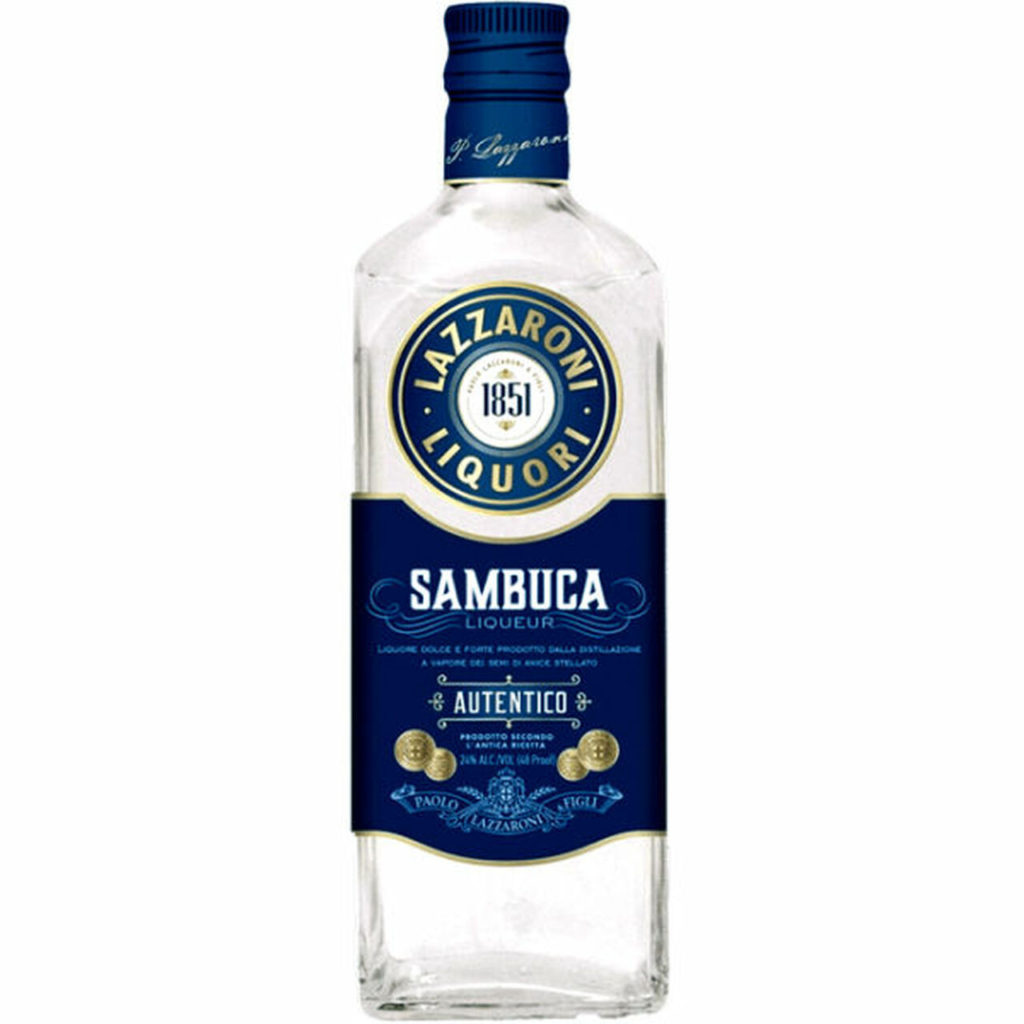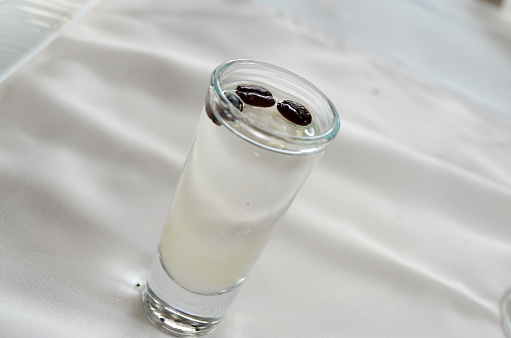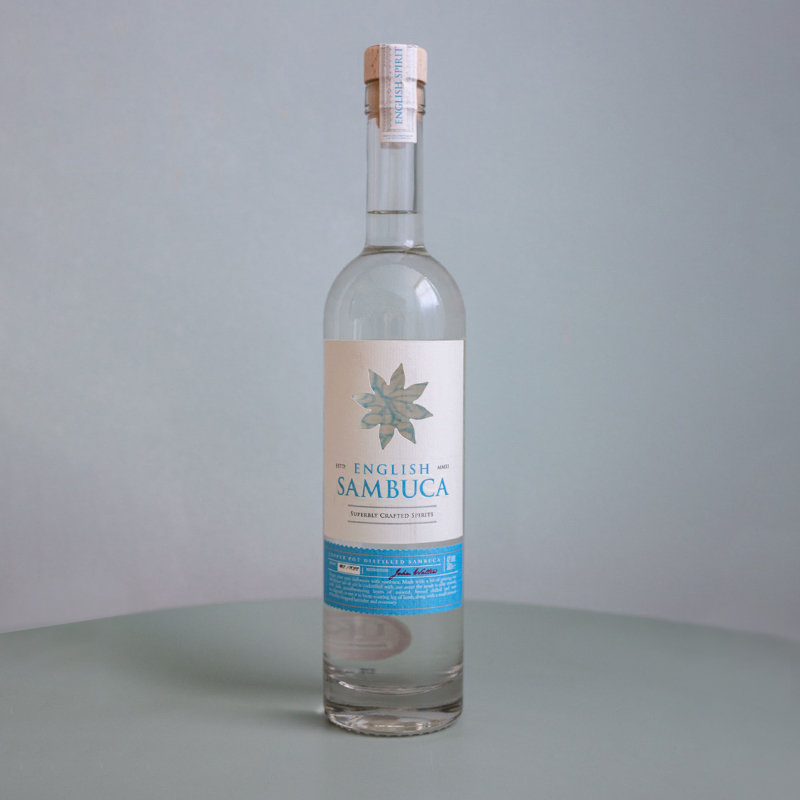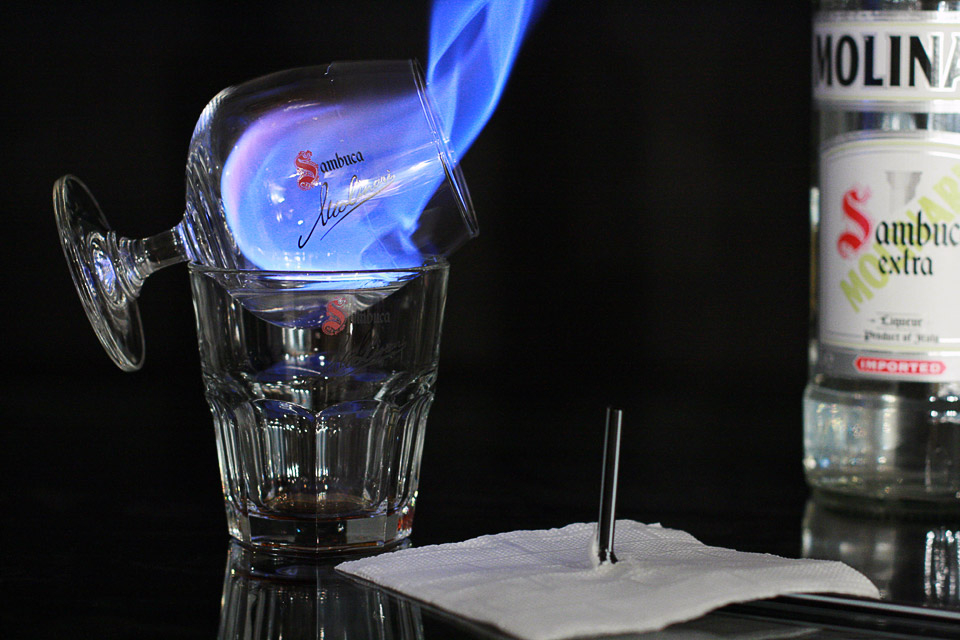- Sambuca is a flavored liqueur from Italy.
- It is spiced with star anise, green anise, and other aromatics.
- Sambuca is usually gluten free, even if the distilled liquor base is from gluten grains.
- Cross-contamination and gluten-containing flavoring agents are also a possibility.
There are many reasons to love Italy. Its wide range of liquors and spirits is, without a doubt, one of these reasons. From Amaretto to Grappa, from Limoncello to Nocino – there’s a lot to be thankful to Italy for. Of these, trendy and cool alcohol is the anise-flavored Sambuca. But is Sambuca gluten free?
Many well-known brands produce high-quality Sambuca in Italy. The distilled liquor base may come from grains or molasses. Even if the grain used contains gluten, the Sambuca variety should be gluten free. Butamination is always in Latins a possibility. Plus, it would be best if you were careful about flavoring agents.
Is Sambuca Gluten Free?
If you’re in an Italian restaurant, it’s a sin not to order Sambuca and watch the clear, syrupy drink arrive with three coffee beans in it.
Each sip of this gorgeous drink will enamor your senses with the richness of green aniseed and star anise, along with the aromas of fennel, spices, elderflower, and licorice.
The most attractive part of the drink is how powerful the fragrances of star anise and green anise are.
However, the base of this alcohol is distilled liquor that may be extracted from grains or molasses. If the base comes from molasses, i.e., raw sugar juice, the Sambuca made from it will be naturally gluten free.
Many brands also make Sambuca using a distillate that comes from grains. If the grains used contain gluten, you’d expect the drink not to be gluten free.
Wheat is often used as the grain from which Sambuca’s base is made. However, you have to remember that distilled liquor is considered gluten free.

So, even if the Sambuca brand you’re planning to buy has a base made from gluten grains, it’s likely that the drink is naturally gluten free.
If you are severely sensitive and wish to be careful, choose a variety made from non-gluten grains or molasses. Check the label or contact the manufacturer for details.
So Sambuca containing alcohol that’s distilled from gluten grains won’t harm you. But if you want to be extra careful, you can always choose brands that do not use wheat or grain mash.
Instead, pick brands like Antica, Lazzaroni, and English Spirit, which use distilled alcohol from molasses as the base.
But if you are allergic to gluten, your responsibility towards your own health doesn’t just end with finding out if your Sambuca is naturally gluten free. It would be best if you also were careful about the possibility of cross-contamination where a naturally gluten free Sambuca comes in touch with gluten ingredients.
This can happen during processing, especially if the facility where the drink is made handles other gluten-containing beverages or ingredients.
As for a restaurant, the possibility of cross-contamination is high due to common serveware. If you order a cocktail, gluten can come from shakers and stirrers.
Another factor you need to consider is the flavoring agents used in Sambuca. The best quality Sambuca should only contain distillates or essential oils derived from spices to add a rich aroma to the drink.
Cheaper brands might use flavoring agents that might be problematic and add gluten back to it.
When you’re suffering from a gluten allergy or celiac disease, a good step to ensure that a naturally gluten free product doesn’t trigger reactions in you is by testing it first.
Since no Sambuca brand carries the “gluten free” label, it’s best to consume it in small amounts to observe whether it suits you.
A variety of Sambuca is the black Sambuca, which may contain fruity flavors like banana, apple, or raspberry. There might be a hint of coffee, too, along with subtle spiciness. Its predominant flavors are licorice and witch elder. It differs in taste, but its gluten free status is no different from white Sambuca.
Is Distilled Alcohol Gluten Free?
How often have you wondered whether a particular alcohol type is right for you? We have all been there, wondering at every step whether our favorite food or beverage will fit into our gluten-free lifestyle. This is particularly true for alcohol, as many of the best drinks are made from gluten grains.
The bad news is that distilled liquor may be made using gluten grains like wheat, barley, or rye. It can even be made using a grain mash that contains one of these.
But wait, there’s good news! You don’t need to stop drinking distilled alcohol. It is one of the best suited for a gluten free lifestyle.
The surprising fact is that pure, distilled liquor is considered gluten free, even if it is made from gluten grains. That’s because of distillation. The process separates volatile substances from non-volatile ones. It eliminates proteins from liquor as proteins don’t vaporize. Since gluten is also a protein, it gets removed.
So the final distillate from gluten grains will not contain any protein, making it safe for you. So, if you choose a drink that contains pure distilled alcohol as its base, you can trust the beverage and drink it.
But be careful about flavoring agents and cross-contamination that might add gluten after distillation.
Recently, distilled alcohol was granted permission to be labeled “gluten free” by the Alcohol and Tobacco Tax and Trade Bureau, the regulatory body that oversees alcoholic beverages.
Brands producing distilled alcohol have proved that their drink doesn’t contain any protein, including gluten.
Since Sambuca has distilled alcohol as its base, it is usually considered safe for celiac disease or gluten allergy. A few rare cases of allergic reactions after drinking Sambuca might exist. But these cases may be the result of gluten-containing flavoring agents or cross-contamination during processing.
Whether it is Sambuca or some other alcohol, you should always be clear about what you are putting into your system. If the label fails to clarify ingredients, please contact the manufacturer to find out about the chances of containing gluten due to contamination or additives.
Health Benefits of Sambuca

There’s a reason Sambuca is such a favorite around the world – and it’s not just about flavors. Sambuca offers many health benefits. Let’s a look:
1) Digestive
Did you know that spices like aniseed, star anise, and fennel help with digestion? As Sambuca contains distillates of these spices, the drink is excellent for your digestion. As a result, Sambuca is often served as a digestif after a meal. It will not only give you a refreshing feel but will also help to digest a heavy meal.
2) Carminative
It can act as a carminative to reduce bloating and flatulence. It is a remedy for diarrhea. If you want to go by the beliefs of the Ancient Greeks, anise extract in Sambuca should also be able to relieve breathing problems and pain and help urination. It can also alleviate cramps, convulsions, cough, and asthma.
Despite the health benefits, remember that this delicious alcohol contains sugar. This adds calories and carbs to the drink.
If you’re actively trying to avoid carbs, this drink might not be for you. a 28-gram shot of this drink contains 1 gram of carbohydrates. It also has 100 calories. So keep an eye on your intake.
Sambuca Origin and History

Spices, elderflower, distilled alcohol – Sambuca tastes exotic. It sounds quite unique, too, right? The beverage’s history is shrouded in mystery. Let’s know a little more about this beautiful drink:
- Name
What does the word Sambuca mean? What’s the origin of the word? There are many debates of the name. Many say that the name comes from the word Sambucus, which, in Latin, means “elderberry”. This is where it gets confusing: Sambuca may feature elderberry, but it’s not a necessary ingredient.
The only possible explanation here is that it was a common word for any liqueur with elderberries found in the birth town of Sambuca, i.e., Civitavecchia. There’s another theory that suggests that the beverage has an Arab connection. Some researchers believe that the name comes from the Arabic word, Zammut.
Zammut is the name of an anise-flavored drink that was brought from Arabia to Italy via Civitavecchia’s port. There’s one thing we know for sure – that the first commercial production of Sambuca was in Italy, and the man behind this was Luigi Manzi. The drink hit the stores for the first time back in the year 1851.
- Luigi Manzi’s Sambuca
Manzi once claimed Sambuca to be a fine anisette that worked wonders as a digestif. He mentioned that he coined the name of the drink, inspired by the Sambuchelli, i.e., the men who worked in his locality between Ischia island and Naples. These men used to take water and anise to the thirsty farmers.
Luigi Manzi’s Sambuca was an instant hit – but only in his locality. It was only after 1940 that the world came to know of this drink. We have Angelo Molinari to thank as he started producing his own version of the drink for the global market. Today, Sambuca is internationally popular because of this brand.
- Sambuca’s Cultural Significance
Sambuca seems to capture the life and vivaciousness of Italy in the 50s and 60s. It became particularly famous in the US after Frank Sinatra fell in love with the drink and wrote to the Molinari family to profess his love for the drink. If Frank Sinatra loved Sambuca, could the rest of America be far behind?
Molinari still remains a famous brand of this drink, and Sambuca Molinari Extra, which the brand itself calls “too much Italian”, is the only Sambuca that’s allowed to use the word “Extra” in the name. Italy’s government considers Angelo’s recipe as the best and has allowed the brand to use “Extra” in the name.
- Customs Associated with Sambuca
This drink might sound like it has a long history, but its story began only in the mid-19th century, though much of it is definitely lost. One thing that isn’t lost is the tradition associated with serving this drink. If you go to an Italian restaurant, it will serve Sambuca with three coffee beans floating in the glass.
This is called Sambuca con la mosca. This can be roughly translated to “Sambuca with the fly”. The three coffee beans stand for health, contentment, and opulence. There’s also a reason why you’ll find three beans. The number is lucky in Italy. That’s why it becomes more popular during the festive season.
Flambeing the beverage is also a ritual followed before serving the drink. An Italian legend says that an old lady and her family were having Sambuca when three flies got attracted by the sweet aroma of the drink. Disturbed by this, they ignited the alcohol to move the flies. The poor flies got roasted.
The Right Way to Drink Sambuca

There’s no right or wrong way to have Sambuca. It is a popular digestif and is served as a first flambeed shot and then topped with three coffee beans.
We have already told you all about con la mosca. Besides the legends, there is another reason behind adding the coffee beans, which is all about taste.
Sambuca is a sugary sweet drink. After drinking the beverage, you should chew on the coffee beans. This will help offset the extreme sweetness.
In fact, it is also served with seven beans sometimes to signify the seven hills of Rome. Flambeing reduces the alcohol content of the drink and maintains the flavors.
Usually, Sambuca is not served neat. It is either mixed with ice water or on the rocks. You might notice an interesting change in Sambuca when you add water to it – the beverage may turn cloudy.
This is the louche or Ouzo effect. It indicates anise content. The cloudier the drink, the higher the anise content.
Sambuca, with its rich flavor notes, is an excellent ingredient for cocktails, too. It is a particular favorite of bartenders for coffee cocktails.
Experiments have helped add some unique flavor combos to bar menus. One of the popular beverages is the Caffè Corretto, with a splash each of espresso and Sambuca.
It can be a fabulous addition to many different beverages, from ice cream to milkshakes. You can even drizzle the liquid over chunks of fruit. While the sweetness of the drink will match the sweet and acidic fruits, the aniseed flavor will add the perfect balance. Now, that’s a fruit salad that we all would love!
While white Sambuca is rarely served neat, it is common to enjoy black Sambuca unmixed and undiluted. You’ll love the inky color of the drink in a tall snifter glass.
Conversely, regular Sambuca tends to come in shot glasses, if not added to a cocktail. No matter how you consume it, Sambuca is a treasure.
Sambuca vs. Ouzo
A lot of people wonder about the difference between Sambuca and Ouzo. After all, both are anise-flavored alcoholic beverages with distilled liquor as the base. In fact, there are many other anise-flavored beverages, but let’s specifically talk about Ouzo, considering the gluten content in it.
1) Gluten Content
Remember how we told you that even if distilled alcohol comes from gluten grains, it will likely be gluten free as the distillation process separates proteins from the drink?
Unfortunately, even though Ouzo contains distilled alcohol, it may not be gluten free. So you have to be careful about this drink.
After the distillation process, gluten grains might be added to the liquor. To make Ouzo, many ingredients are added to rectified spirit, including fruits, spices, and grains.
Every manufacturer has a unique recipe for Ouzo, and it may contain gluten-containing grains. So it is much more unsafe for you than Sambuca.
2) Origin and Drinking Customs
Apart from this major difference, these two 19th-century Mediterranean favorites differ in many ways. While Sambuca comes from Italy, Ouzo is a Greek beverage.
Sambuca is a digestif served after a meal, while Ouzo is usually consumed before a meal as an apéritif to boost the drinker’s appetite.
3) Louche Effect
In addition, Ouzo is served with chilled water most of the time, and you will always notice the louche. That’s why it is referred to as the Ouzo effect, even when Sambuca does that.
For Sambuca, turning cloudy is much rarer. That’s because the anise extract is much more in Ouzo compared to Sambuca.
4) Taste
Ouzo also differs from Sambuca in taste. Even though both are flavored with anise, Sambuca is quite sweet because of the presence of sugar. On the other hand, Ouzo is a dry drink.
Plus, the alcohol content in Sambuca is 38 percent, but in Ouzo, it can be anything between 37.5 percent and 50 percent.
Final Lines on “Is Sambuca Gluten Free”
For alcohol connoisseurs who want to go beyond beer, scotch, wine, and other mainstream drinks, Sambuca is one of the most delicious drinks.
It has a rich flavor profile full of spices – and a moreish blast of sweetness to add balance to the taste. It is undoubtedly one of the best Italian alcoholic beverages.
Since its base is distilled alcohol and extracts of non-gluten spices, it can be considered safe for people allergic to gluten.
But if you want to be extra careful, you can contact a manufacturer to know about the grains and additives used and the chances of cross-contamination during processing in their facilities.
More Posts for You: